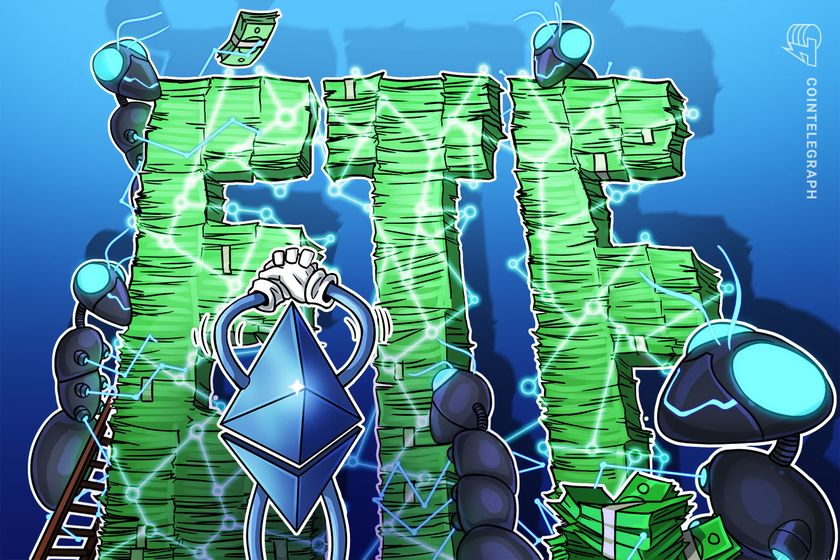a16z-backed TrueFi launches DeFi lending market for asset managers

Ali Yahya, a general partner at Andreessen Horowitz, told Cointelegraph that TrueFi will “bring the unique advantages of DeFi to a wider and global user base.”
Stablecoin operator TrustToken has launched a new lending marketplace that allows asset managers to create their own decentralized finance products, potentially opening the door to wider mainstream adoption of DeFi solutions.
The new lending marketplace, which is offered on unsecured lending protocol TrueFi, gives independent financial institutions the ability to design, launch and fund new investment products. Asset managers also have access to TrueFi’s pool of lenders and borrowers as well as TrustToken’s institutional offerings.
Version 1 of the TrueFi protocol was shipped to institutional clients in November 2020 around the same time that the native TRU token launched. The protocol allows for the creation of collateral-free loans denominated in the TrueUSD stablecoin and vetted using on-chain credit scores. In 2021, the protocol originated $1 billion worth of loans.
TrueFi is described as an “app store for lending,” but instead of developers launching applications, the protocol enables asset managers to launch new financial portfolios directly on-chain.
Institutions are bullish on #Bitcoin!
The amount of BTC held by public companies has gained significant market share from that held in spot ETFs. https://t.co/DZP2AlMXlh
— Cointelegraph (@Cointelegraph) January 3, 2022
On Thursday, Delt.ai, a Mexico-based Y-Combinator startup, was announced as TrueFi’s first non-crypto financial partner. Since December, the startup has used TrueFi to originate millions of dollars worth of loans and expects to lend up to $25 million to Latin American businesses by the end of 2022.
TrueFi’s current lenders are “largely private, pseudo-anonymous individuals and family offices in DeFi, participating at a range of investment sizes,” TrustToken CEO Raphael Cosman told Cointelegraph in a written statement. TrueFi’s borrowers are likewise increasingly diverse, representing crypto hedge funds, venture capital-backed startups and soon-to-include traditional financial institutions.
Related: Crypto infrastructure firm Fireblocks valued at $8B following $550M raise
When asked about the driving force behind the growing institutional adoption of blockchain-based financial products, Cosman told Cointelegraph that “capital will always seek the best risk-adjusted yields,” regardless of whether it’s coming from DeFi or traditional finance.
“The best yields are no longer in traditional markets, like equities or bonds, but in DeFi,” he said. “That promise of lucrative returns is the biggest force pulling traditional finance on-chain, and we expect it to continue.”
Even with the promise of higher yields, the transition to the unfamiliar world of crypto isn’t easy for many financial institutions. Cosan explained:
“First, it takes any organization time to understand and become comfortable with the “wild west” of crypto. This includes understanding the technology, the risks, the mechanisms for trading and custody of assets, and how to bring money into and out of crypto […] The same goes for compliance and regulatory clarity.”
Institutions want Bitcoin now more than ever, and Fidelity just revealed that 90% of their biggest clients are clamoring for crypto. https://t.co/MdsFljbqhL
— Cointelegraph (@Cointelegraph) August 17, 2021
Related: SBF ‘optimistic’ about institutional crypto adoption in 2022
Institutional involvement in the blockchain industry has broadened considerably over the past year, with asset managers buying into cryptocurrency funds and financial institutions utilizing crypto transactions with greater frequency. Several crypto-focused companies have also expanded their service offerings to target institutions, chief among them being ConsenSys, the blockchain infrastructure provider behind popular wallet extension MetaMask. In May 2021, the company announced a new service designed to onboard institutional players to the DeFi ecosystem.









